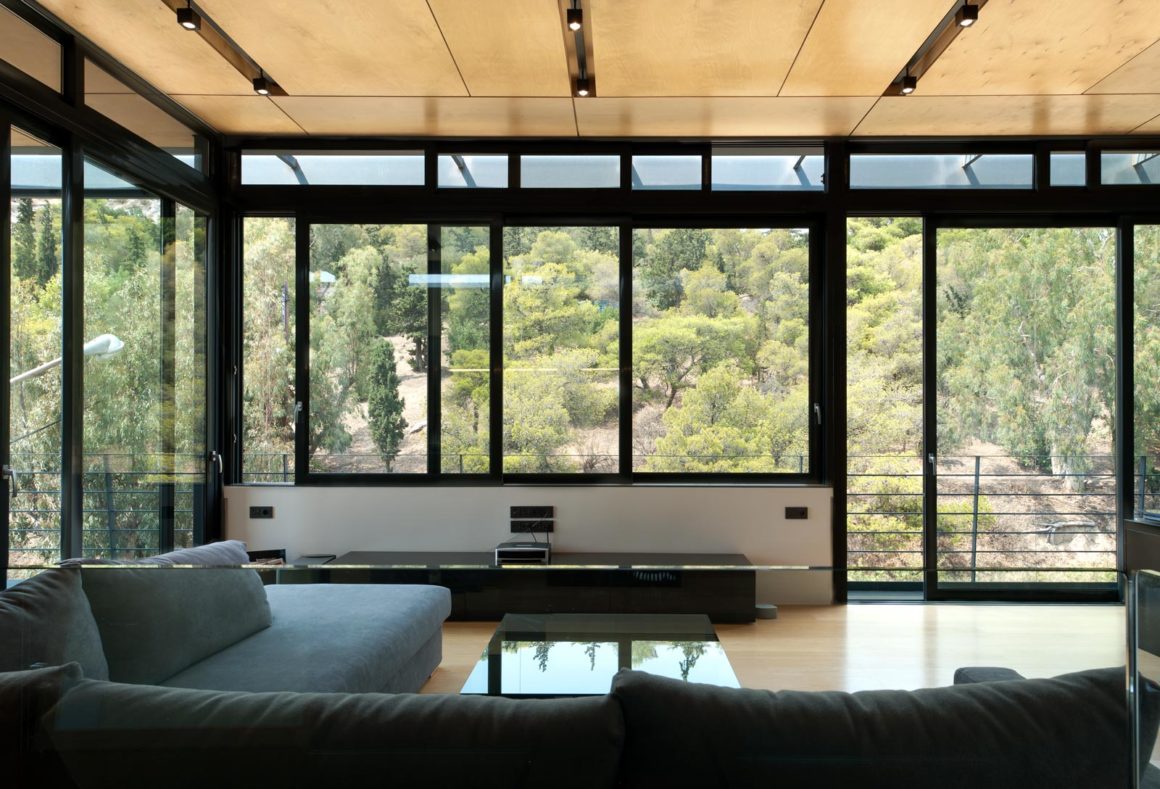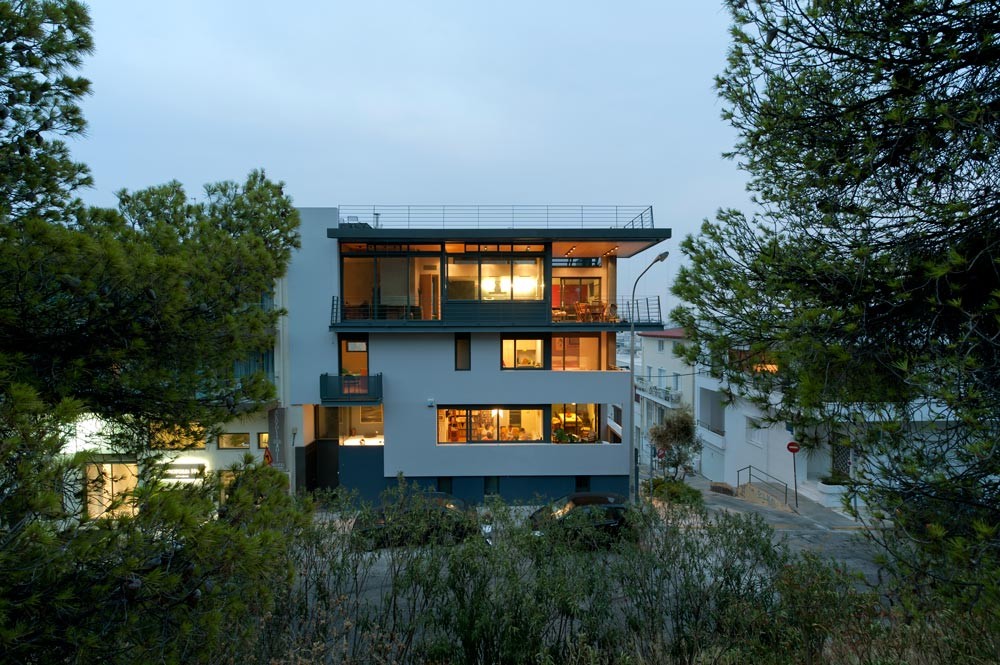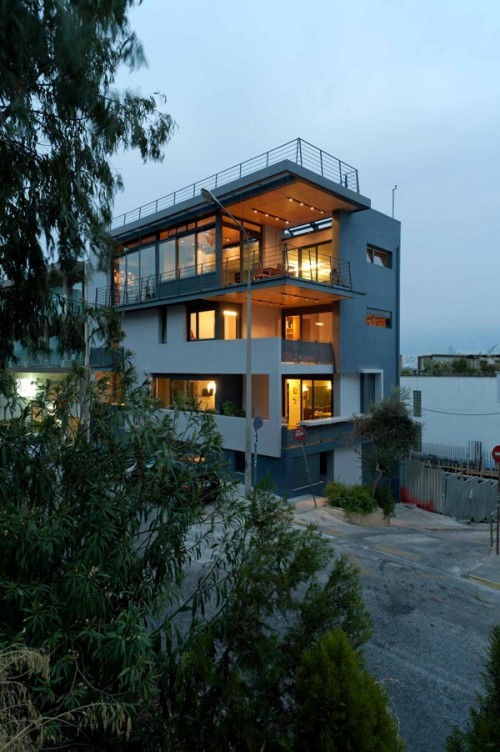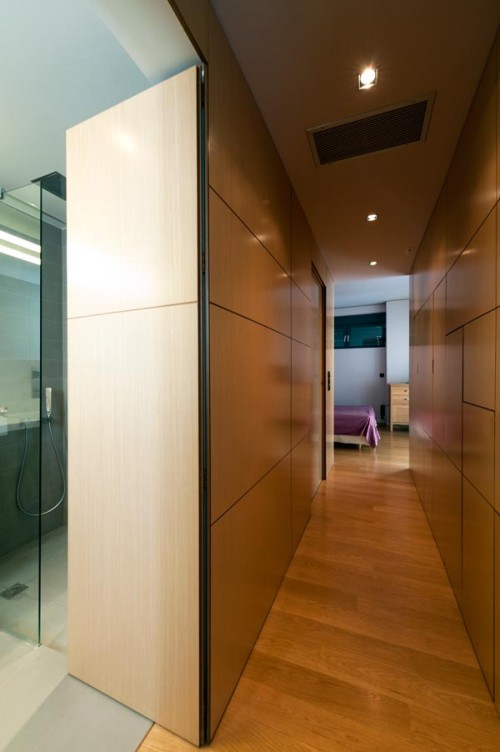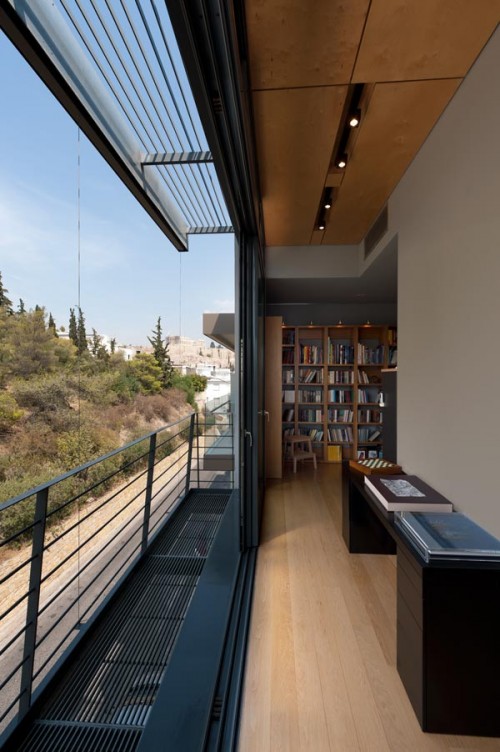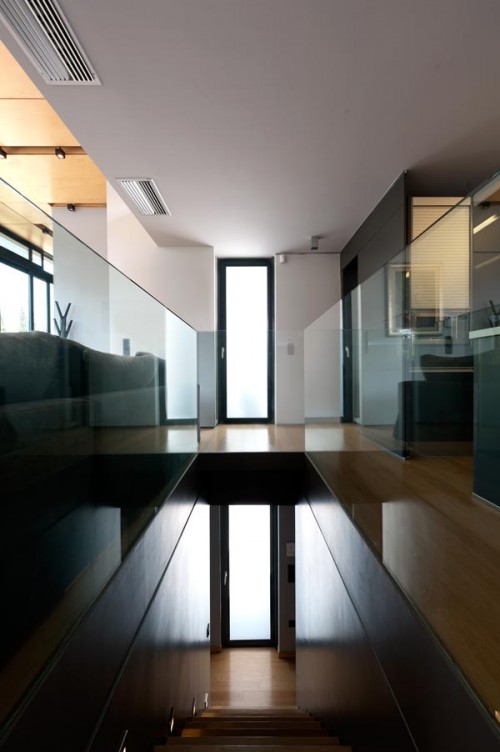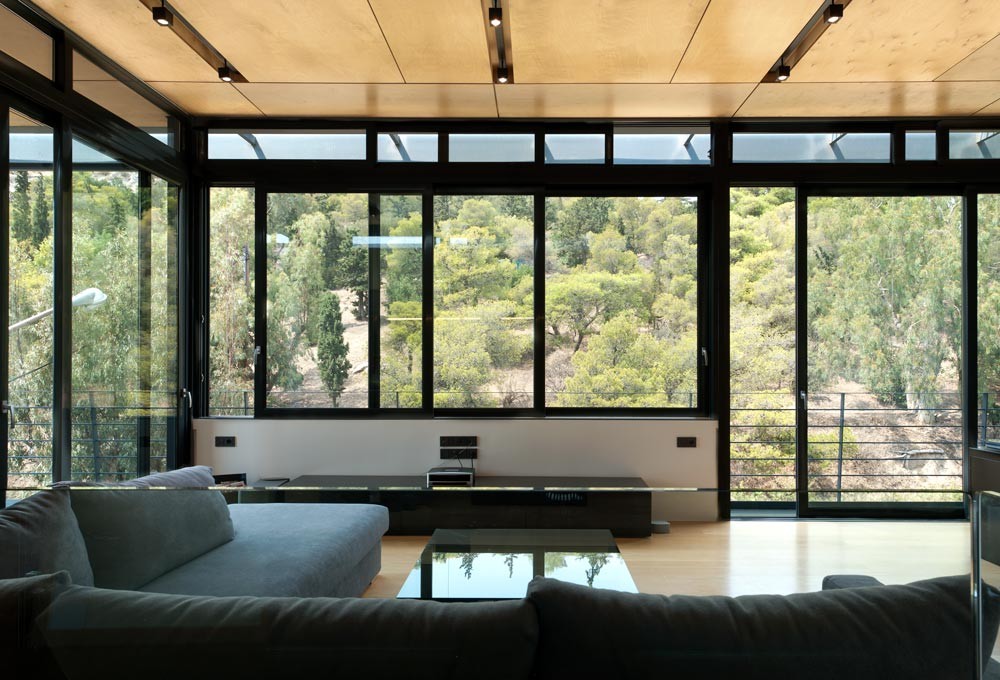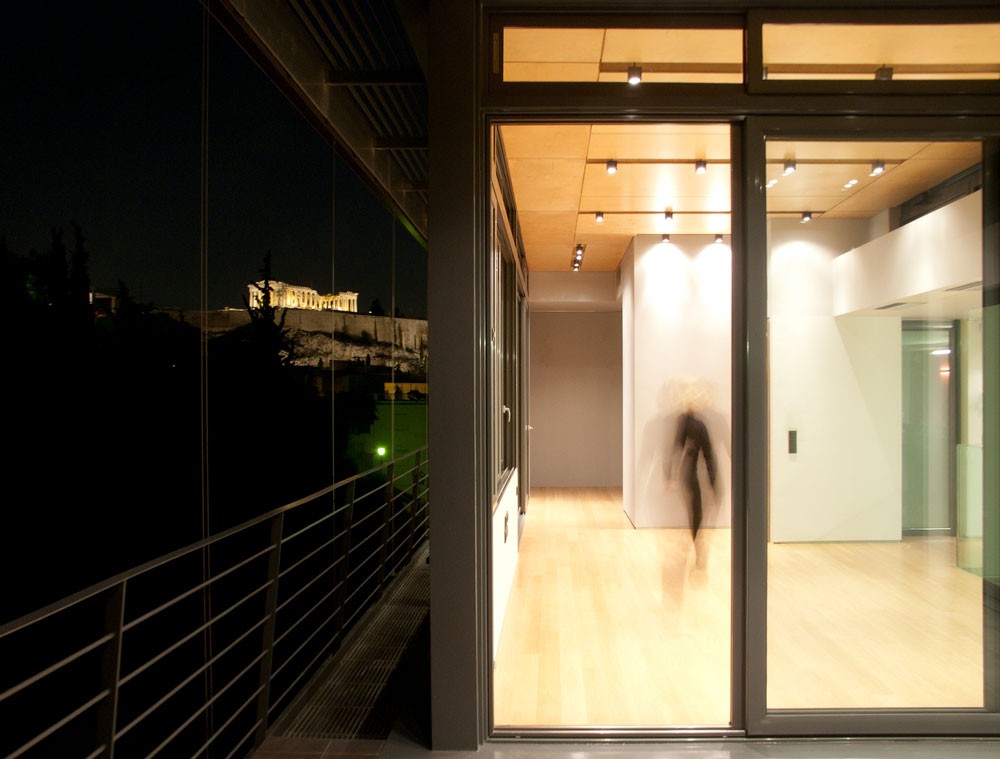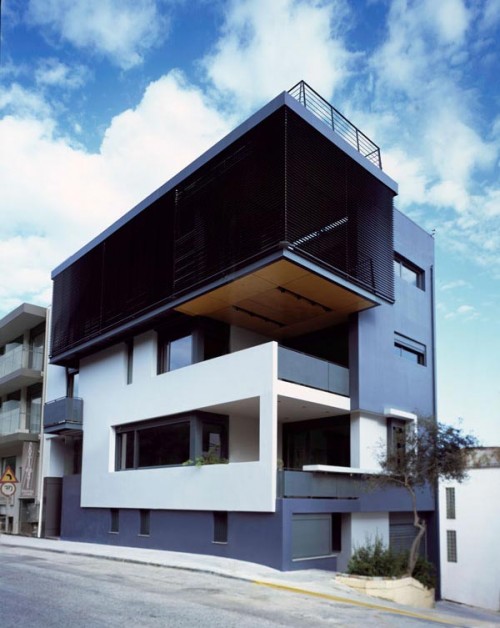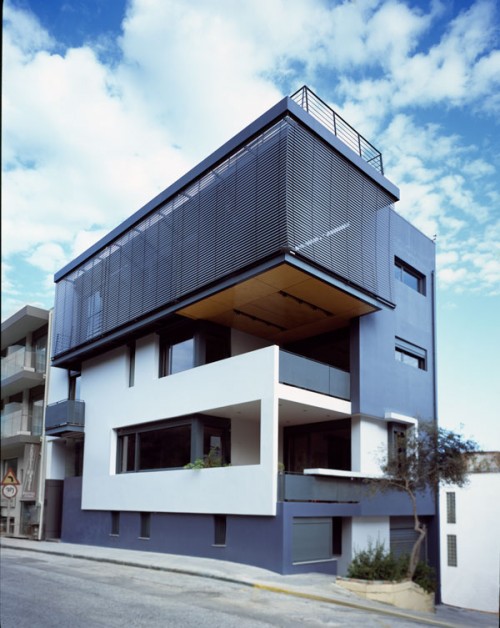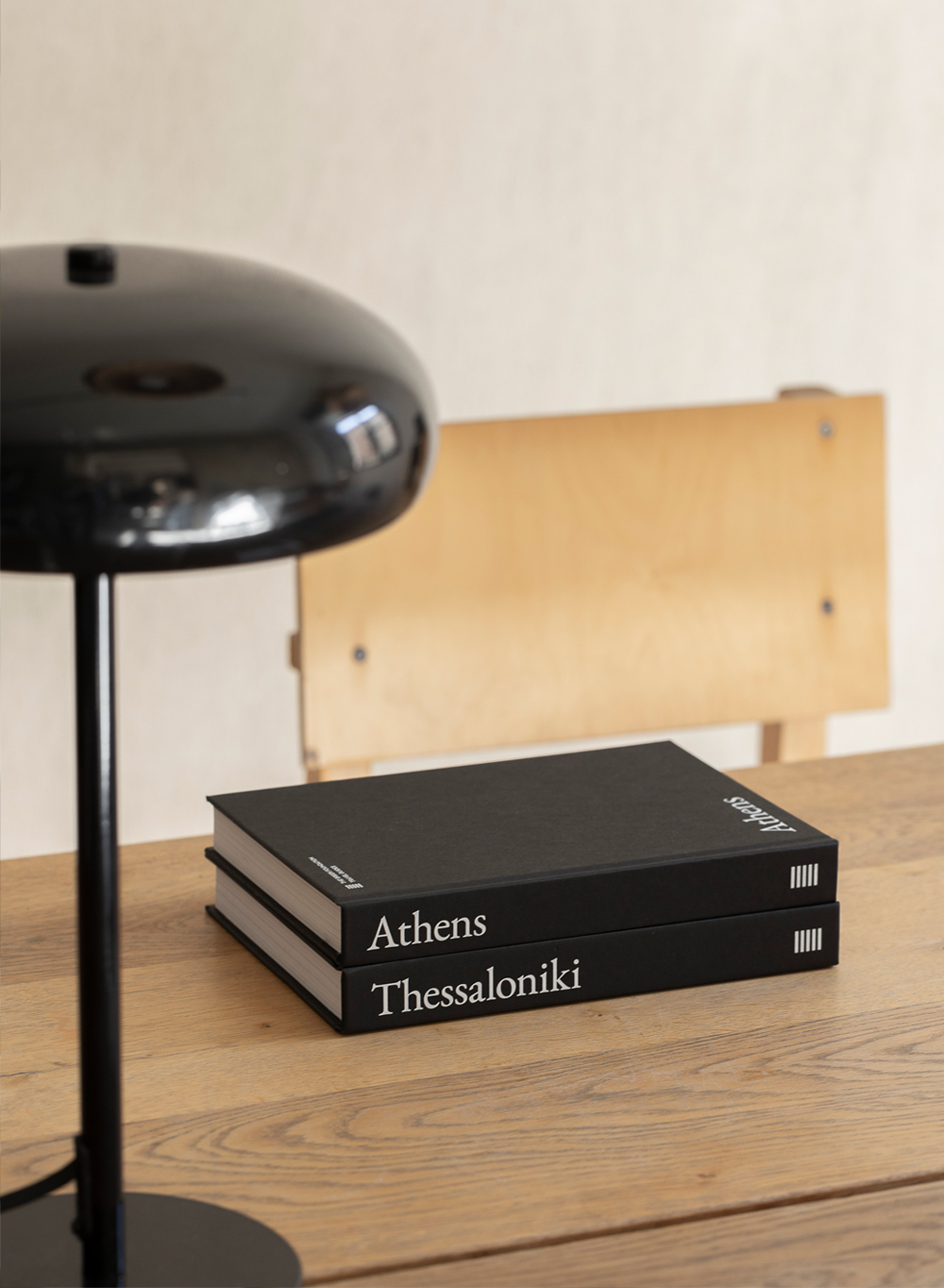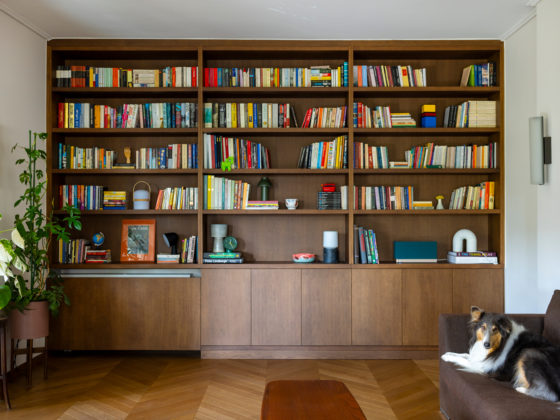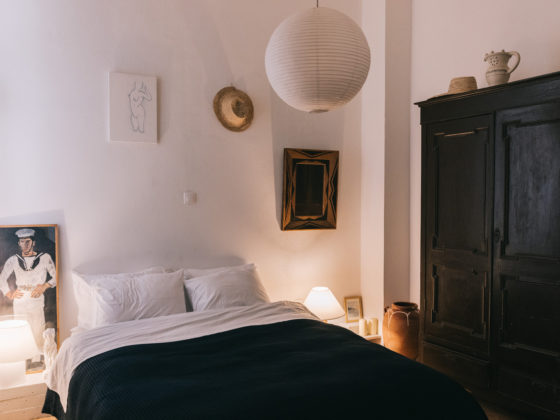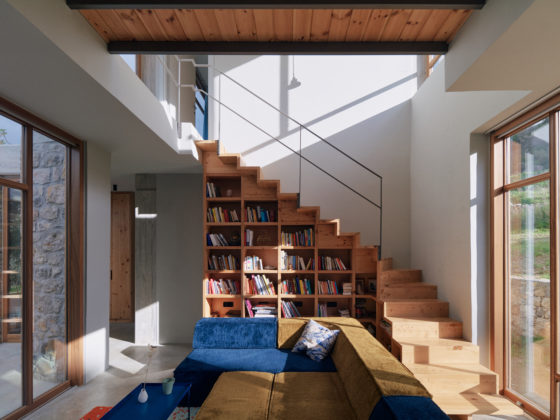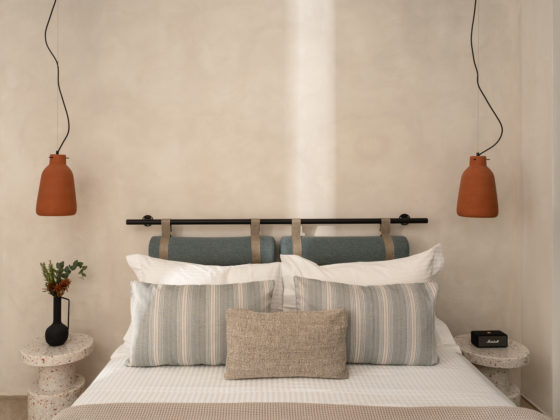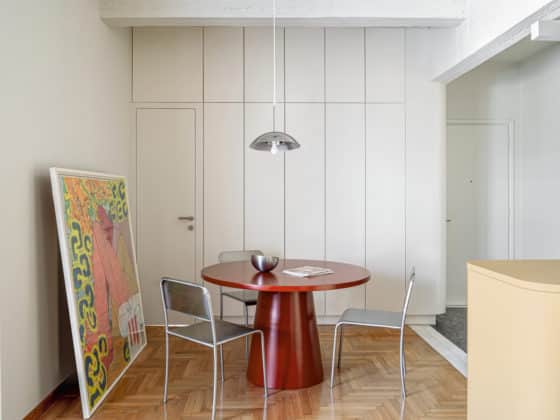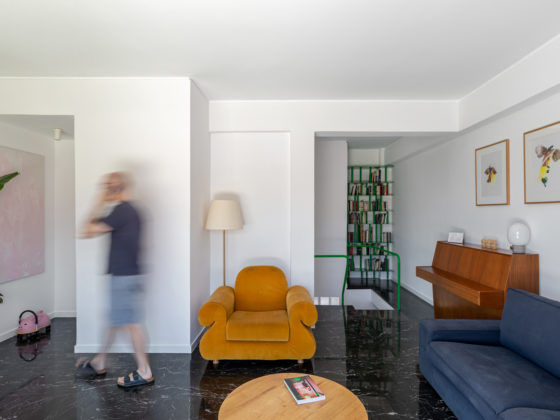This residence in Athens designed by Z-level Architecture offers great views to its surroundings, using movable metal blinds to offer sun protection and varying natural light to its interior.
The house forms part of a line of contiguous houses that front onto the circular road that rings Philopappou Hill, with a view towards the Hill and towards the Acropolis. The building is situated on the boundary between the densely-built urban web formed by small plots of land with continuous low-level buildings, and the natural Attic landscape. The corner plot faces southwest and offers views towards the city and the sea. The building comprises two two-storey condominiums covering 350 sq.m. The unique position of the building was handled with a view to escalating to a crescendo, juxtaposing the surrounding area (consisting of the road, hill and city and the Acropolis) with the tripartite separation of the building into base / body / crown. The building’s structure is expressed in its volume and its elevations. The building is permeated throughout by its relationship to its environment; this is moderated through the use of boundaries and the position of openings and transitional outdoor spaces. The view changes angles and from frontal and specific it broadens to overlook the panorama, from the Acropolis to the sea.
The floor plan is organized to cover two distinct zones, which slide around in order to achieve the greatest possible building length running parallel to the hill, so that each interior point of the building is ensured a view. The voids created are where the balconies project on the exterior corner and vertical circulation takes place in the interior corner. This formation ensures that interior spaces have a through draught, which, combined with restricting the amount of sunlight to infiltrate into the building, maintains temperature at pleasant levels in a natural manner. To protect the upper segment of the building from sun out of the west and from public view, moveable metal blinds were utilized, which enclose it, creating a mutable prism. This mutability is also reflected in the interior space, with different qualities of natural light and a transposition of the building boundaries.
